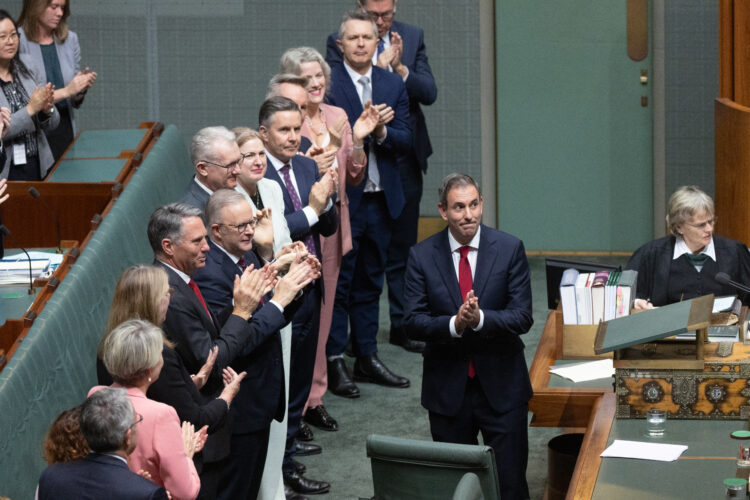Q: I wanted to read you a couple of quotes and see if you can identify who said this. “That deficit of vision has reduced the Budget to a $100 billion missed opportunity, a Budget that borrows big and spends big but thinks small, a Budget that delivers generational debt without generational dividend, a trillion dollars in debt and growing, deficits as far as the eye can see but barely anything else designed to survive beyond the election.” Then there was this: “These guys wouldn’t know fiscal levers from a selfie stick.” That’s a good one. “Always the phoney photo I like the sound of this ops”
Chalmers: I like the sound of this guy.
Q: “You can exist like that and maybe for a time you can succeed and that’s the biggest risk in this Budget. Instead of laying out an economic vision, the government focused on political reception.” Both of those were from Jim Chalmers in 2021. You’ve delivered a Budget which forecasts a decade of deficits, a trillion dollars in debts and my question, Treasurer, is do you feel like a hypocrite today?”
Chalmers:
No, of course not, because central to last night’s Budget was an economic vision for the long term, building Australia’s future was a key element. Building a future made in Australia, investing in every single stage of education which will pay intergenerational dividends long after any of us are still here. The Budget is long on vision. It’s also long on recognising that people are under pressure and we’ve got responsibilities to them. When you mention the fiscal position, the fiscal position this year, you mention $1 trillion of debt which we inherited from predecessors. We’re at 940 this year, a lot of debt but it was supposed to be $177 billion higher without our efforts and that’s saving us on interest costs. I appreciate the opportunity to remember and reflect on what we inherited when we came to office and we have deliberately and decisively taken a different approach to our predecessors. Their Budget was weighed down by waste and rorts and missed opportunities and we’ve invested in the future of this country, building more homes, investing in lifelong learning, strengthening Medicare and these are legacy items we will leave behind whenever we finish up in this place.
The one thing every political party has in common, no matter who leads it, is once it is in government the debt is someone else’s fault. Like clockwork.
